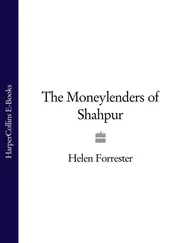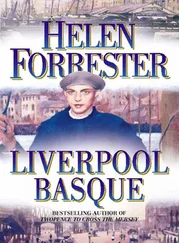James Forrester - The Roots of Betrayal
Здесь есть возможность читать онлайн «James Forrester - The Roots of Betrayal» весь текст электронной книги совершенно бесплатно (целиком полную версию без сокращений). В некоторых случаях можно слушать аудио, скачать через торрент в формате fb2 и присутствует краткое содержание. Жанр: Исторический детектив, на английском языке. Описание произведения, (предисловие) а так же отзывы посетителей доступны на портале библиотеки ЛибКат.
- Название:The Roots of Betrayal
- Автор:
- Жанр:
- Год:неизвестен
- ISBN:нет данных
- Рейтинг книги:5 / 5. Голосов: 1
-
Избранное:Добавить в избранное
- Отзывы:
-
Ваша оценка:
- 100
- 1
- 2
- 3
- 4
- 5
The Roots of Betrayal: краткое содержание, описание и аннотация
Предлагаем к чтению аннотацию, описание, краткое содержание или предисловие (зависит от того, что написал сам автор книги «The Roots of Betrayal»). Если вы не нашли необходимую информацию о книге — напишите в комментариях, мы постараемся отыскать её.
The Roots of Betrayal — читать онлайн бесплатно полную книгу (весь текст) целиком
Ниже представлен текст книги, разбитый по страницам. Система сохранения места последней прочитанной страницы, позволяет с удобством читать онлайн бесплатно книгу «The Roots of Betrayal», без необходимости каждый раз заново искать на чём Вы остановились. Поставьте закладку, и сможете в любой момент перейти на страницу, на которой закончили чтение.
Интервал:
Закладка:
Clarenceux put his arm around her shoulder: “Find me a horse, Alice Prudhomme-the fastest one you can.”
75
Wednesday, May 24
Francis Walsingham watched as Sir William Cecil sat down at the table in his study and signed a paper, which he thrust into the hand of the nearest clerk. “See to it that he receives it today. Is there anything else pressing, may I ask?” Neither of the clerks accompanying him said a word. Cecil clapped his hands once and rubbed them together. “Good. If you will all now leave me in peace, I would like to attend to some business of my own.”
He watched them leave, then picked up the sealed letter that had been delivered to him twenty minutes earlier. “There it is,” he said, tossing it across the table. Walsingham walked over, picked it up, and inspected it. One side was marked: Sir William Cecil, her majesty’s Secretary . On the other side it bore Clarenceux’s seal, in red wax.
“He is back in London then,” said Walsingham.
“That’s not the point. Read it.”
Walsingham picked up the paper, unfolded it, and began to read.
Right worshipful friend and kinsman, I respectfully recommend myself to you and to the majesty to whom you and I both owe allegiance. I will not deceive you; I have been much vexed and threatened lately by the manner in which I have been treated by certain men who deem themselves loyal servants of the Crown. First, a document was stolen from my house which, apart from its intrinsic historical value, cast the legitimacy of her majesty the queen in a new light. Second, unless that document has now been presented to her majesty, I can only suppose that the perpetrator is harboring it for treasonable-as opposed to historical-purposes. Third, despite being a herald and a member of her majesty’s household, I was detained without trial contrary to the terms of Magna Carta by two royal servants, namely yourself and Mr. Walsingham. Fourth, letters were issued in your name to Sir Peter Carew to destroy a royal ship on which I was known to be sailing, the Davy, in order to inhibit my investigation of the theft of the said historical document. Fifth, every crew member of that vessel who was not killed was incarcerated by Sir Peter Carew-even though each had undertaken to help me in my quest for the document. Sixth, you know well that the widow of Henry Machyn of London, merchant tailor, was detained recently, contrary to the terms of Magna Carta without trial at Calshot Fort in the county of Southampton, which lies under the command of a royal officer, Captain Parkinson, who received his orders to detain the woman directly from you. As Widow Machyn had undertaken to steal the document in question, there will be a public infamy that her detention is a consequence of your desire to obtain the document for your own ends and, unless it has been presented to her majesty, this calls into question the integrity of your loyalty to the Crown.
In the hope that I can yet ascertain the further truths connected with this matter, and identify the true protagonists, and thereby clear your name of the terrible slander that will pertain to it should these six facts become more widely known and notorious, I desire that you come to my house at precisely four of the clock this twenty-fourth day of May. Come alone, and you will be met kindly, in friendship and reconciliation.
Your obedient and willing servant,
Clarenceux
“Arrest him,” said Walsingham, replacing the paper on the table. “Hang him. Wash your hands of him. You know where to find him.”
Cecil rose to his feet. “Yes, well, Francis, you will forgive me if I do not follow your advice. I will go alone.”
Walsingham frowned. “I am sorry, I do not understand.”
Cecil picked up the letter. “Do you believe a man of Clarenceux’s intelligence is simply going to allow himself to be arrested-after both you and I have failed to keep him under lock and key? Do you think he trusts me? Can’t you see the message in this letter?”
“It’s too vague to be a real threat.” Walsingham shrugged. “If you do not do as he asks, what will he do? Come and find you?”
“Damn you, he will send this same letter to Robert Dudley.”
“He wouldn’t dare.”
“Francis, open your eyes! He has spelled Dudley’s name out in this letter.” Cecil picked it up and held it out, shaking it, in front of Walsingham. He stabbed the page with his forefinger. “Look, there-where those words are underlined. Why did he do that? See that word, which is underlined, beginning with ‘d’? Then the next one that is underlined, beginning with a ‘u.’ And so on. Do you think it is an accident that he has named both Dudley and the people who can testify to the truth of his story?”
“We will go together. Take guards-surround the house. He will not be able to get away.”
Cecil carefully put his hands flat on the table. “Clarenceux is not the danger. It is the information he carries that is dangerous-and he knows it. If I arrest him, it will confirm the truth of all this. I do not doubt that a copy of this letter will go to Dudley straight away. Clarenceux won’t be the one who sends it.”
“So what do we do?”
“I will go, as he requests, alone. He will be watching me-but so will you. Have just three or four men around his house, in sight of one another. If he tries to abduct me, or hold me to ransom, you will move in with my own guard, who will stand outside, and half a dozen other men-at-arms whom you will conceal nearby. Go and requisition an appropriate house now.”
76
That afternoon, at eight minutes to four, Sir William Cecil’s burgundy fur-lined cloak was laid across his shoulders by a groom of his chamber and he walked across the yard of Cecil House. He did not call for his horse; instead, six men in his livery followed him down the Strand and into Fleet Street, two of them armed with loaded muskets. The weather felt close, with a cold breeze, as if a storm was about to break.
Cecil carried no sword but listened to the jangling belt-harnesses of the men behind him. Approaching Clarenceux’s house, he glanced at the front. The shutters on the ground floor were closed, as always. Those on the first floor were open, however. So too were those on the second floor. He turned to the men behind him. “Three of you, go to the back of the house and guard the rear exit. No one goes in or comes out except those men under the command of Mr. Walsingham. The other three, stay here. The same applies to this entrance.”
Cecil knocked hard on the door with his gloved hand. He waited. No answer came. He knocked again and noticed the door move a little. When it became apparent that no one was answering, he tried turning the handle. It was unlocked. He pushed it open and went inside.
The mustiness of an empty house greeted him. “Mr. Harley? William?” There was a slight echo along the dark passageway beside the staircase. Dust had fallen on the stairs but it had recently been disturbed in the center. He began to climb, the wooden boards creaking beneath his feet. “William?” he called again from the landing, looking through the door into the hall.
He went in. Everything seemed to be in its place, from the elm table by the window to the carpets covering the two chests at the opposite end of the room. The four pictures on the white plaster looked at him accusingly from their gilt frames.
“William?”
Cecil began to look around the hall. Only when he came close to the elm table did he realize that it was not in its usual place. It had been drawn forward, nearer to the middle of the room. On it was a book: the Old Testament in Latin. There was a piece of paper tucked inside. He opened the volume. The piece of paper marked the pages of the Book of Job, chapter seven. Verses 11 and 12 were underlined: quampropter et ego non parcam ori meo loquar in tribulatione spiritus mei confabulabor cum amaritudine animae meae. Numquid mare sum ego aut cetus quia circumdedisti me carcere? Cecil knew these lines: “Therefore I will not stop my mouth; I will speak in the anguish of my spirit; I will complain in the bitterness of my soul. Am I a sea or a whale that you surround me in prison?”
Читать дальшеИнтервал:
Закладка:
Похожие книги на «The Roots of Betrayal»
Представляем Вашему вниманию похожие книги на «The Roots of Betrayal» списком для выбора. Мы отобрали схожую по названию и смыслу литературу в надежде предоставить читателям больше вариантов отыскать новые, интересные, ещё непрочитанные произведения.
Обсуждение, отзывы о книге «The Roots of Betrayal» и просто собственные мнения читателей. Оставьте ваши комментарии, напишите, что Вы думаете о произведении, его смысле или главных героях. Укажите что конкретно понравилось, а что нет, и почему Вы так считаете.












